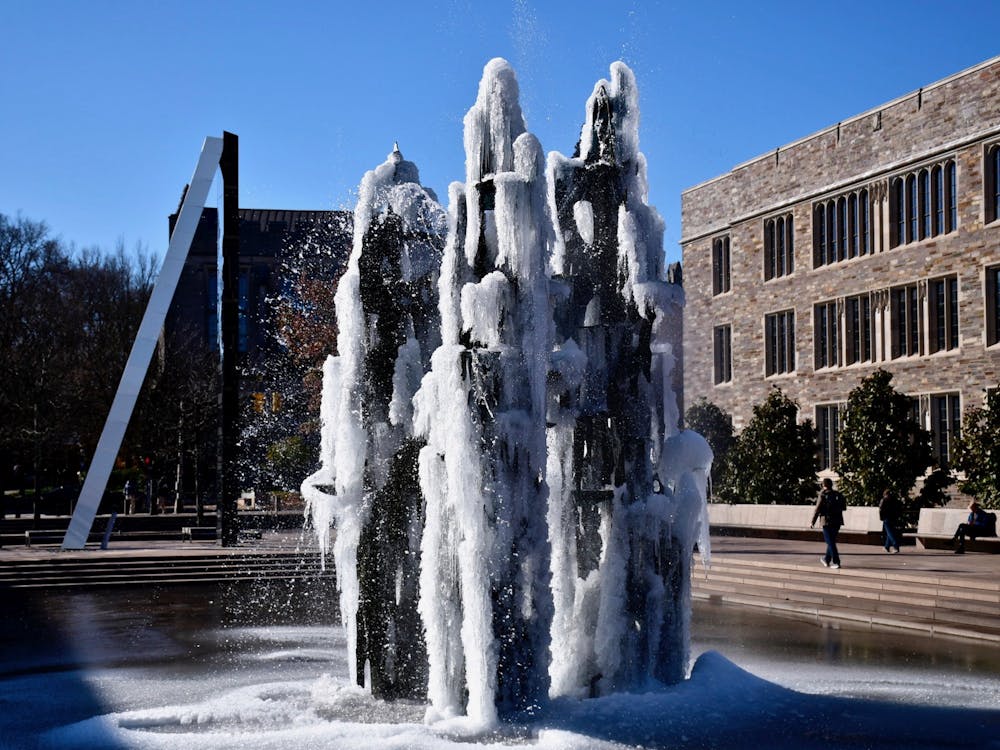This year’s Wintersession, normally an in-person, two-week experience that offers informal workshops taught by undergraduate students, graduate students, staff, and faculty members, will take place from Jan. 18–31 and be conducted virtually.
The University will support four types of Wintersession offerings: intensive workshops (five days of two-hour courses), double session workshops (two days of two-hour courses), single session events (one-time courses either one or two hours long), and evening events (including student group performances).
Pre-registration for Wintersession will run from Oct. 26 through Nov. 1.
Under the former academic calendar, in which fall exams took place in January, Wintersession coincided with the last week of exams and “Intersession,” the week between the end of finals and the beginning of the spring semester. Two years ago, the faculty voted to hold fall final exams before winter break. Beginning this year, Wintersession will occupy the two weeks immediately prior to the spring semester.
Director of Wintersession and Campus Engagement Judy Jarvis is optimistic for future Wintersessions, despite the current constraints imposed by the COVID-19 pandemic.
“The two-week Wintersession will be chock-full of exciting, surprising and fascinating offerings, and our hope is that students will experiment and try something they’ve never tried before, whether it be origami making, building their storytelling skills, learning how to map the Amazon rainforest, or hearing from alumni who have run for political office,” Jarvis said in an interview with The Daily Princetonian.
Jarvis and her team have worked to adapt the experience online.
“We made a number of adjustments to make sure that Wintersession offerings do not worsen students’ screen fatigue,” Jarvis said. “We reduced the length of sessions so that none are longer than 2 hours at a time, so even if you’re taking a five-day intensive, it will only meet two hours a day.”

As most international students are dispersed outside of the U.S., Jarvis expressed hope that some of the Wintersession offerings will accommodate students across many time zones.
“We know that students are all over the world, so we are working on a calendar of offerings that spreads things out,” Jarvis said. “For example, there will be four ceramics courses: some will be early morning East Coast time, and some will be late afternoon East Coast time to try to give people in different time zones a chance to choose timing that works best for them.”
She also added that the Wintersession Advisory Committee, which comprises faculty, administrators, graduate students, and undergraduates, has accepted over 150 proposals, many of which provide “crash courses” on a variety of topics, such as quantum mechanics, Afrofuturism, and non-Euclidean geometry. Other offerings will help students learn new hobbies, such as baking, beatboxing, and podcasting.
“Wintersession is a way for us to share knowledge with each other without the pressure of grades, and my hope is that attendees will learn alongside many people they’ve never interacted with before,” Jarvis said. “For those hungry for new connections and exploring new knowledge and skills, Wintersession is the spot for you.”

Students expressed positive sentiments when asked what they are most looking forward to in this year’s Wintersession.
Calvin Hunt ’24 said, “I can’t wait to explore new activities and get out of my comfort zone and hopefully make some lasting friendships at Wintersession.”
Sajan Young ’24 echoed Hunt, expressing excitement for the release of Wintersession offerings on Oct. 26.
“I can’t wait to learn more about … [the] opportunities that Princeton’s Wintersession can help provide,” Young said.
More information on courses and format can be found on the Wintersession website here.
Editor’s Note: A previous version of this article characterized the evening events as “student group performances with suggested sliding scale donations.” Not all evening events will be student group performances and only one will contain such a donation mechanism. The ‘Prince’ regrets the error.








